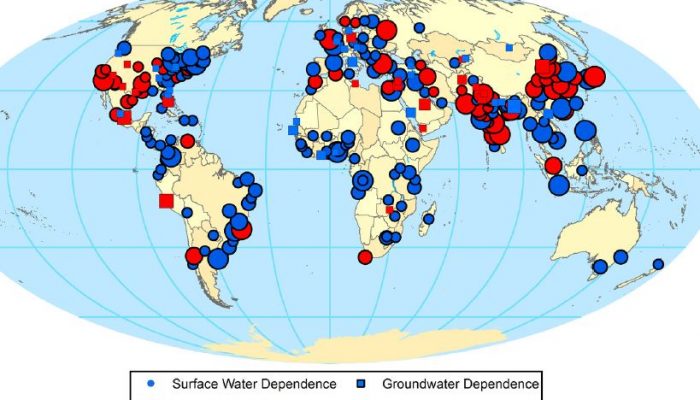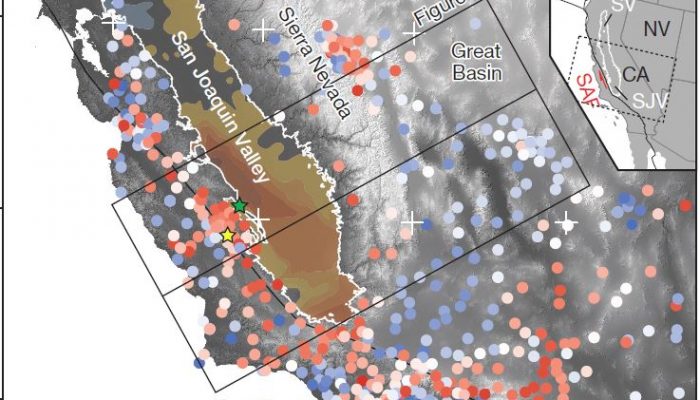Fancy helping translate the latest science into something for kids? Get in touch! We’re on the hunt for a few people to help review Planet Presses (http://www.egu.eu/education/planet-press/), bite-sized press releases for kids. One of the problems with a non-expert taking something and turning it into kids’ speak means that some key details could be lost. This is where you come in! If ...[Read More]
If you didn't find what you was looking for try searching again.
Soil System Sciences
Permafrost Young Researchers Network: the study of permafrost in a climate change scenario
Marc Oliva University of Lisbon, Portugal The World Climate Research Program (WCRP) and the IPCC Working Group 1 (Fourth Assessment Report) recognize the Cryosphere as one of the most significant challenges of climate science and as a major source of uncertainty in global climate projections. While the permafrost carbon feedback has been identified as potentially the largest terrestrial fee ...[Read More]
Polluting the Internet
Sand gets everywhere
Saharan dust is currently escaping the confines of the desert and making a break for it over the Atlantic Ocean towards South America. Below is a true colour image from the MODIS instrument on the TERRA satellite from this morning (6th June). You can see the dust from the desert over the ocean; note the constrast between the darker blue ocean surface and the lighter shade where the dust resides. B ...[Read More]
GeoLog
Real life Minesweeper
Reading GeoLog when you should be working? We are all guilty of a little procrastination, but, sometimes, the parallels between science and the games we play to postpone the next write-up are closer than you’d think. Victor Archambault, a scientist from US Radar, reveals how playing Minesweeper mimics the way geoscientists analyse data in the field… We have all played the infamous Minesweeper that ...[Read More]
Seismology
The Continental Drift Controversy
For many, the theory of continental drift is a proven and understood concept. Few are aware that the debate has been decades-long process. A recently published, multi-volume book is re-going through the whole story on how the theory evolved, detailing the views of how scientist perceived it over time. The debate is between fixism and mobilism which the author, Henry R. Frankel, describes in a thre ...[Read More]
WaterUnderground
and we have a winner….Coolest Hydrogeology Paper of 2013 Winners announcement
From Matt Currell on Linkedin: It is with great pleasure that I can announce the winners of the first ever ‘coolest paper of the year’ competition, organised by the steering committee of the ECHN. Big congratulations to the authors of our winning paper: Şebnem Arslan et al: Environmental isotopes and noble gases in the deep aquifer system of Kazan Trona Ore Field, Ankara, central Turk ...[Read More]
WaterUnderground
One in four of world’s big cities water-stressed
From the McGill Newsroom As more people move to urban areas, cities around the world are experiencing increased water stress and looking for additional water supplies to support their continued grow. The first global database of urban water sources and stress, published online this week in Global Environmental Change, estimates that cities move 504 billion litres of water a distance of 27,000 kilo ...[Read More]
GeoLog
Imaggeo on Mondays: Long-lived lakes have a lot to tell
The world’s oldest, deepest freshwater lake lies in southeast Siberia: Lake Baikal. Stretching some 600 kilometres across the Russian landscape, Baikal marks what the very early stages of a new ocean – an ancient rift that cleaved the centre of Asia apart throughout the Palaeozoic, Mesozoic and Cenozoic. Today, there are still signs of tectonic activity and the rift continues to diverge 4 mm furth ...[Read More]
Seismology
Feedback to EGU
The EGU General Assembly 2014 was again a great success with 4,829 oral, 9,583 poster, and 483 PICO presentations as well as 12,437 scientists attending from 106 countries. Please find more details at: http://www.egu2014.eu A special survey has been set up to give everyone the chance to report back their feedback about this year’s EGU. For those who have not already completed the Survey plea ...[Read More]
WaterUnderground
Groundwater extraction can move mountains
Contributed by Pascal Audet (webpage or email) Next time you eat food grown in the San Joaquin Valley of California, think about this: the water used for growing them probably came from under ground. Farmers do not really have a choice because the amount of water from rain and snow can’t keep up with the needs for growing food. Every year more water is drawn out of the ground for irrigation. ...[Read More]



